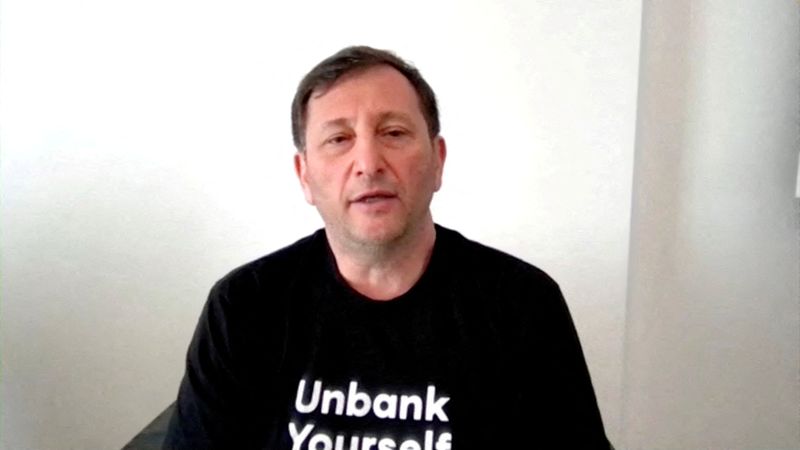By Dietrich Knauth
(Reuters) - A court-ordered examiner is expected to release a report on Monday addressing whether bankrupt crypto firm Celsius Network operated as a Ponzi scheme, which could add to the pressure on founder Alex Mashinsky, who is already facing fraud allegations.
U.S. Bankruptcy Judge Martin Glenn, who is overseeing the crypto lending platform's Chapter 11 case, appointed former prosecutor Shoba Pillay as an independent examiner in September, tasking her with investigating Celsius customers' allegations that the company operated as a Ponzi scheme and reporting on the company's handling of cryptocurrency deposits.
Hoboken, New Jersey-based Celsius filed for Chapter 11 protection from creditors last July in Manhattan after freezing customer withdrawals from its platform. It listed a $1.19 billion deficit on its balance sheet.
Celsius had consented to an examiner's review after reaching a deal that scaled back a wide-ranging investigation proposed by the U.S. Department of Justice's bankruptcy watchdog and state securities regulators from Texas, Vermont and Wisconsin.
After appointing Pillay to the job, Glenn expanded her role by asking her to address persistent customer complaints about Mashinsky's conduct.
Mashinsky was sued earlier this month by New York Attorney General Letitia James, who alleged that he defrauded investors out of billions of dollars in digital currency by concealing the lending platform's failing health.
A lawyer for Mashinsky did not immediately respond to a request for comment, but has said previously that his client denies the allegations and looks forward to vigorously defending himself in court. A spokesperson for Celsius did not immediately respond for comment.
Mashinsky, 57, is an entrepreneur who founded companies like Arbinet, which went public in 2004, and Transit Wireless, which provides wi-fi service to the New York City subway.
In hundreds of interviews, blog posts and livestreams as the public face of Celsius, Mashinsky promised its customers that they would receive high returns if they deposited digital assets on his platform, with minimal risk, according to the New York AG's lawsuit.
Bankruptcy examiners can provide courts, judges and creditors with an impartial look into the failures of a bankrupt company, but their cost is a frequent source of controversy when limited funds are available to pay existing debts.
Crypto exchange FTX, which went bankrupt in November, has resisted calls for an examiner in its own Chapter 11 case, citing the cost of overlapping investigations.

FTX CEO John Ray, who worked with examiners in the bankruptcies of Enron and Residential Capital, said in a court filing that examiner reports in those two bankruptcies cost a combined $150 million and provided "minimal" benefits to creditors.
Pillay and her team have sought to be paid $1.86 million for work performed in October and $1.69 million for November, according to court filings.